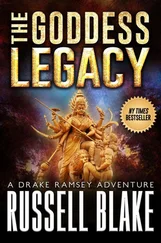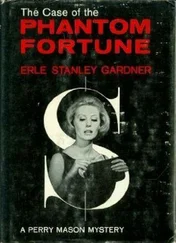After saying goodbye to the four young ladies, Albert leisurely strolled up the path to the professor’s apartment. In the bright sunlight of the cloudless morning, the church bells called the faithful to worship.
Once at the front door, Albert knocked and the professor opened the door, this time bright and alert.
Conspiratorially, Stein confided that his wife had left to visit her friend in Geneva and, so—slipping into his American patois—Stein quietly proclaimed, “The coast is clear.”
Sitting on the terrace sipping coffee, Albert asked about America and the current state of its economy.
Stein said, “Wait here please.”
He left the terrace, returning a moment later with a magazine.
“Here is the most authoritative source we in the field of political economy have. It is a magazine that rather pompously likes to call itself a ‘newspaper’ so as to differentiate itself from the likes of Luce’s meretricious Time magazine and to associate itself with the quality broadsheets like The Times of London, and the Financial Times , and even the rather parochial New York Times .”
Stein opened the issue to the page he had marked with a slip of paper.
“The gist of this comment is that in 1930 the income of the average American was one-third greater than that of the average Britisher, but now at the end of the decade it is at par—the average American’s income is now the same as that of an Englishman. This is just 10 short years. And remember, apart from coal, Britain is devoid of natural resources, natural resources that the United States has in abundance. The magazine has recently commented that the United States seems to have forgotten how to grow. It also notes that in the five years from 1933 to 1938 Roosevelt has spent more money than the total money spent by all his 31 predecessors combined, and those presidents had to fund a terrible civil war as well as the Great War.”
“Really, more than the previous 31 presidents, combined? Are you sure, is that really possible?” Albert said, clearly very surprised.
“Yes, it’s rather amazing, isn’t it?”
Clearly warming to his subject, Stein continued, Socrates-like,
“Is there hunger in Germany, today? What about America?”
“Sadly, there is hunger in all countries. Sad, little children go to bed hungry in all the world’s countries. I would like to think that in Germany since ’33, we have improved the lot of our people, at least I hope we have.”
“And I think you have improved the lot of the average person in Germany, at least as far as their belly goes. And I agree with you—sadly, there is hunger in all countries. So let me put you in a spaceship from Jules Verne with engines made of the finest Krupp steel, and take you to a planet where there is hunger but the state dictates that six million pigs be slaughtered and destroyed and wasted. Or that farmers are paid not to grow food, even while honorable young boys in Brooklyn hang themselves so as to not be a burden on their starving family. Or that a farmer who wants to put an acre under crop needs a government license or is fined $1,000 a day. Or that chefs are told how they must make macaroni. Or that a housewife buying a chicken cannot select the bird, but must by law be given a chicken at random. So on this fantastical planet, housewives lose their primal right of selecting the food with which to feed their family. What would you say about that place?”
“Six million pigs wasted. Well, Professor, you’re right, it is science fiction—no such place could possibly exist.”
“Albert, I have described exact events that have happened in America in the past ten years.”
Stein smiled at Albert’s frown.
“Bizarre though it sounds, since 1933, Germany’s economy has been freer than that of United States. Obviously I am speaking strictly about just the political economy, not about personal freedom, as Germany’s one-party dictatorship is just that—a dictatorship, and like all dictatorship it is a terribly brutal one: Kristallnacht; the endless hounding of Jews; the copying of the Britishers’ concentration camps of their South African wars of the last century—the list of brutalities is endless.
“But in purely political economic terms, there is less regulation and less harassment of German business men today than on the other side of the Atlantic. The wasting of the six million pigs was mandated by Roosevelt in an insane attempt to increase farm prices. Of course, that’s just another way of increasing hunger and starvation—the government told poor people to pay more to help farmers. And take the treatment of Henry Ford. When Ford refused to sign the so-called Blue Eagle code of Roosevelt’s NIRA and follow instructions that he must increase the prices of his cars, he was mercilessly persecuted. Ford was threatened by the brutal commissar, an impetuous bully named Hugh Johnson, a man Stalin would admire, both for his drinking and his explosive temper. About Ford, Roosevelt actually said at one of his press conferences that ‘ we have got to eliminate the purchase of Ford cars from all government tenders;’ these are his own words, the words of the current American president. And when Ford bid on a contract for 500 trucks for one of Roosevelt’s alphabet soups—I think it was the CCC—his bid was $169,000 less than the nearest rival and yet it was rejected.
“Now Roosevelt did not start the Depression, that dubious honor is reserved for his predecessor, President Hoover, whose nickname was the ‘Boy Wonder.’ Actually the Republican Hoover was much closer to Roosevelt’s ideas than most people realize: Hoover’s backward view was that ‘high wages creates prosperity.’ Obviously, the opposite is true. So before Roosevelt, after the crash of ’29, Hoover forced companies to keep unsustainable and artificially high wages; these companies did what any rational business man would do, they simply laid off employees, which had precisely the opposite effect of what Hoover wanted. You see Albert, Hoover and Roosevelt both think that government is wiser than the market place. The Republican Hoover was the opposite of his predecessor, the Republican president Coolidge. Whereas Coolidge thought government interference caused more problems than it solved, Hoover loved to jump in, to ‘do something’—to do anything at all, no matter how bad. But the problem is that the things that Hoover did were hugely damaging. In the last stock market panic in ’21—before Hoover—companies laid off workers and business improved with the increased efficiencies, and then they hire back the workers, and more workers as well. One of the many things Hoover did that was so damaging in the ’29 Panic was he forbad companies to fire people, so many companies just went broke and shut their doors. And Hoover forced the railroad companies to spend one billion dollars, and this was at a time when the entire U.S. government budget totaled just three billion dollars.”
At this juncture the two men were joined by Sebastian, Stein’s faithful dachshund, who wandered onto the terrace and after approvingly sniffing Albert’s shoes, proceeded to lie in the patch of sunlight.
“He will get too hot in a few minutes and then will move back inside.”
Sure enough, after two minutes Stein’s prediction came true.
“Albert, you see, these days governments around the world believe that business men are more immoral than politicians, when in fact the opposite is actually true. A business man is only interested in one thing, namely profits, but politicians and their kowtowing minions in universities are only interested in power, hidden under the pretense of ‘helping people.’ Academics the world over all think they are greatly superior beings, blessed with superior intellects, conversing with superior colleagues, discussing superior topics, holidaying in superior locales, ineffectively lusting after pretty young waitresses. Fortunately, academicians are generally ignored. But politicians nowadays believe that only they can manage their country’s political economy, and that the normal and natural cathartic effects of busting of periodic bubbles with panics are unnatural. Politicians and my fellow academics don’t realize that they do more damage in the long term by trying to change human nature. And business men and especially investors are driven by the contradictory emotions of greed and fear. It would be nice to have the ideal of the ‘rational man’ but sadly people are not rational; they are primeval and crude and unpredictable; this will never change.
Читать дальше













